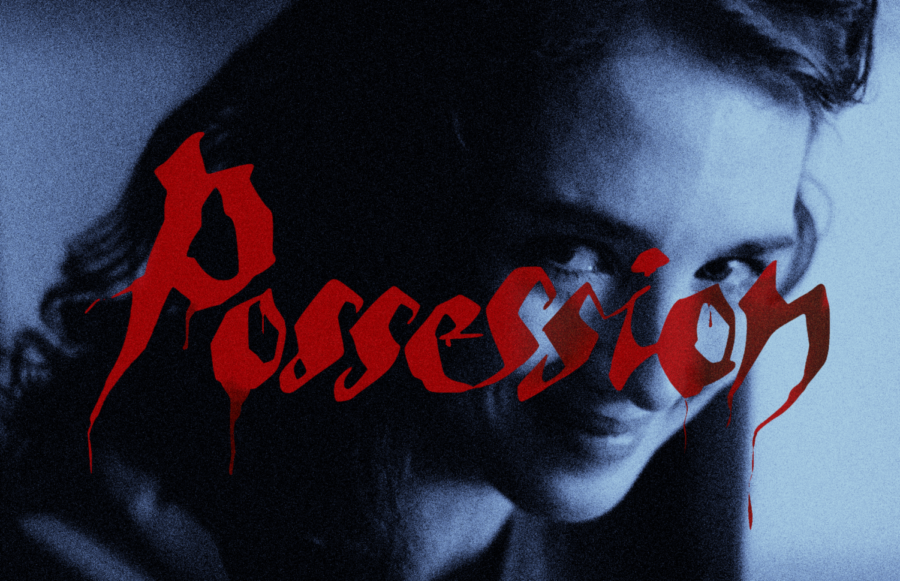Why embrace the horrors of reality? What is reality but what we believe to be true? How true are our beliefs? These are some of the questions posed in the various unflinching, unforgettable features of Polish-filmmaker Andrzej Żuławski. Ranging from acute, structurally ambiguous conflicts to biblically symbolic destitutes of guilt and shame, let’s take a deep dive into the mucky caverns of Żuławski’s disgusting subconscious — and the terrific film its responsible for…
The subject of divorce can and always will be synonymous with dramatic anguish and misunderstanding, in films that is. The idea of a break up being either both parties faults or neither is definitely a template of a cliché manner — and specifically, one you wouldn’t necessarily associate with supernatural horror.
But it is in Żuławski’s first and only English-language 1981 magnum opus “Possession”, that this brutal contrast can come to idealistic fruition, and retroactively fulfill the pivotal emotions that comes from a toxic relationship: envy, spite, and hate sprung from love.
Set adjacent to the actual Berlin Wall, Kreuzberg 1980, we follow a tormented marriage on the brink of collapse: The unsatisfied and unstable Anna (Isabelle Adjani, “Nosferatu The Vampyre”), the paranoid and possessive Mark (Sam Neill, “Jurassic Park”), and their poor son Bob (Michael Hogben). A triangular cycle of neglect and sorrow that reaches its boiling point in around the first ten minutes of the film.
“Maybe all couples go through this…” whimpers a worried Anna to her husband she views a stranger, as they lay nude in bed with absolutely no devotion or attraction to one another. The two not only begin to detest each other’s very presence, but their squabbles and tantrums push the very limits of human behavior and reaction – with their fights taking physical turns for the worst, as well as downright yelling atrocities at each other at the top of their lungs – which inadvertently find their arguments taking hold in public, the views of their peers, and ultimately their own son.

Mark works as a spy in Berlin, as a result he is quite the untrusting and precocious type. Mark’s professional necessity to intrude and speculate takes an unintended personal turn as he deliberately hires a contract investigator (Carl Duering) to spy on his own wife — after the news is broken that she might be seeing another man, the slavish and inquisitive Heinrich (Heinz Bennett). What I’m describing sounds like a heavy drama of the most violently bleak caliber, with hints of espionage. But very soon… “Possession” pulls the rug out from under the audience’s feet. Revealing that it is, above all else, a psychological thriller. And this ‘man’ from Anna’s agnostic affair may not be as deliberately present as Mark might think, in fact, it might not be human at all.
“Possession” is one of my all time favorite films for a number of reasons. It’s incredibly verbose in both its themes and presentation, often audacious with its metaphors and performances, and a prime example of a storyteller whose genius is so overwhelming: the more you think about the film the more it makes sense instantly. Its a chaotic, cosmic gumbo of over-the-top acting, borderline horrendously disturbing allegories, intrusively provocative sequences and brilliant practical effects.
Its an evident story about divorce and the pain it inflicts, its also about remorse and the pain that comes from our own psyche that takes on a metaphysical form in both its science-fiction-horror set pieces and egregiously sacrilegious imagery. The concepts in “Possession” can at times come off as disingenuous or abruptly one-sided. But it doesn’t pinpoint the exact root of its peril, rather, it allows the audience to draw their own conclusions regarding the characters’ actions and how justified the consequences are. It’s not like either person is inherently worse than the other, but they’re both not innocent either. They contribute in the fact that they are harmoniously troubled, they both hate each other as much they love – in a terrifyingly synchronized manner.
Isabelle Adjani, who rightfully won the Cannes-award for Best Actress in 1981, brings herself to cross the limits of acting ability I have seen no woman nor man conceive on film ever. Her performance is so hauntingly realized and unforgettably uncomfortable in fact, that I’ve literally had scenes of hers running rampant in my mind for days on end even after rewatching some two months ago. Its a power I have yet to see matched from any performer in any piece of media, it is truly unearthed – and thats the point.
There is something inquisitively foreign about not only “Possession”s presentation but also its sensibilities. Its a reckless tale of aggression that finds way to dig deep at your most horrific fears because it is a human drama first and a horror film second.
Sam Neill also proves to be a tour-de-force, providing a harrowingly depressive spiral into horrific mortality. A performance so potent with the most violent of weakness on full display, slowly churning into an irritant, obsessive maniac – leading to an emotional revelation so devastating, it helped me reevaluate my own depression and the failed relationships in my own life. Not that I relate to this physically abusive maniac, per say, but there was an extremely strange comfort in seeing the most deranged and uncompromised of emotion be emitted by an actor in this specific way. It is truly awe-inspiring and again, yet to be met by another actor again.
Between the sweaty, shaking body movements, to the ear-piercing screams of their rapidly depreciating souls, the two leads in “Possession” offer some of the most expressive, jarring, and brilliant performances from any two actors in any horror – or any film for that matter. In the same vein as actors working with Stanely Kubrick, both Adjani and Neill detailed that production took an extreme mental and physical toll on them respectively – which is evident by simply witnessing them. Adjani went even as far as stating that it took years of therapy to fully recover from the detriment the role brought. Neill also admitted it was the most extreme role he’s ever played, and that he completed the film with his sanity ‘barely intact’.
Witness these two individuals become the makers of their own evil, and defy their own morals and physical abilities to transcend a level of acting I can only call mesmerizing, devastating, and simply jaw-to-the-floor perfect.
In short, “Possession” is a film of tremendous sadness and anger, as well as profound resonance and grotesque beauty. It is an undeniably hard film to sit through, and one that will definitely turn more heads than it enlightens. It is a true, uncompromising vision from one of the loudest, most artistic voices in international cinema that found a way to manifest the deep-rooted darkness in all of our souls to take a true, genuinely monstrous form… literally. It is one of the single greatest exercises in acting, epistemological screenwriting, and tonal perfection — and my absolute favorite horror film of all time.
10/10
POSSESSION is available to stream on Shudder and AMC+
If you’ve seen “Possession” and have any interest in the directors other films (for some reason), I’d recommend another one of my favorite films, “On The Silver Globe” – an underrated sci-fi epic that has gone unnoticed for decades. It’s available to watch for free on YouTube here.



